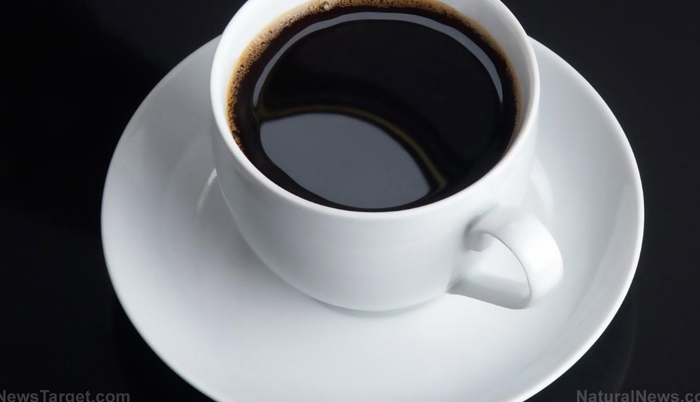![]() Home > Lifestyle
Home > Lifestyle
Coffee And Tea Can Keep Your Heart Healthy…But Only If You Drink In Moderation

News Target | Natural News
![]() July 8th, 2024 | 01:46 AM |
July 8th, 2024 | 01:46 AM | ![]() 785 views
785 views
NATURAL NEWS
If you happen to have irregular heartbeats, chances are your healthcare provider will tell you to skip caffeinated drinks. But a new review by Australian researchers suggested that these drinks are safe for people with abnormal heart rhythms. Coffee and tea can even lower the prevalence of arrhythmia, according to an article on Medical Xpress.
If your heart beats too quickly, slowly, or irregularly, you probably have arrhythmia. Some instances are not dangerous to the patient and might even be overlooked for many years.
Other times, though, arrhythmia could raise the chances of a sudden heart attack. The most common form taken by the disorder is atrial fibrillation (AFib), where the heart beats so rapidly that it skips beats. AFib can lead to strokes if it not treated.
It so happens that one of the chemicals that can lead to AFib is called adenosine. This chemical can be blocked by caffeine, such as the 95 milligrams found in the typical cup of coffee. (Related: Did you know it could do all that? 12 creative uses for coffee.)
Moderate levels of caffeine improve heartbeats of post-heart attack patients
Australian researchers discovered this link between caffeine consumption and the stimulant's effects on atrial and ventricular arrhythmia after poring over the results of several population-based studies. In their review, they reported that the earlier studies regularly demonstrated that consuming more caffeine decreased AFib.
Lead author Dr. Peter Kistler said most people considered caffeine to be a frequent acute trigger for arrhythmia. The director of electrophysiology at Alfred Hospital and Baker Heart and Diabetes Institute in Melbourne, Australia, explained that his team's review said otherwise.
Furthermore, Kistler said that caffeine was not linked to ventricular arrhythmia (VA) in any way. Even taking the equivalent of six cups of coffee (equivalent to 500 mg of caffeine) did not raise the chances of VAs, nor did it make existing instances even worse.
Indeed, the results of a randomized experiment showed that post-heart attack patients who drank 353 mg (milligrams) of caffeine (roughly 3.5 cups of coffee) every day reported healthier heartbeats with no incidents of arrhythmia.
The only studies that showed caffeine raised the risk of VA were the two where patients drank at least nine or 10 cups of coffee on a daily basis. It took at least 855 mg of caffeine to cause serious problems.
Drinking moderate amounts of caffeine improves cardiovascular health
Looking back at the results of the earlier studies, Kistler noted that patients who drank moderate amounts of coffee and tea on a regular basis enjoyed reduced chances of developing arrhythmia during their lives. He concluded that caffeinated beverages could prevent arrhythmia over the long term thanks to a combination of caffeine's antioxidant effect and role as an adenosine blocker.
However, his team also warned patients who already have heart problems to refrain from energy drinks. A single serving could contain as much as 500 mg of caffeine concentrate. Three out of every four patients with pre-existing heart problems said they suffered palpitations within a day of consuming at least two energy drinks.
Instead, arrhythmic patients could safely consume up to 300 mg of caffeine each day, based on the results of the large population studies and randomized control trials reviewed by Kistler's team. This is a general guideline, though, as an individual patient could turn out to be one of the 25 percent who were much more vulnerable to developing arrhythmia after taking in caffeine.
Kistler's team therefore recommended that anyone who suffered AFib attacks after drinking coffee or tea should avoid any caffeine-rich drinks.
Find out more ways to protect the health of your heart at Heart.news.
Source:
courtesy of NATURALNEWS
by Edsel Cook
If you have any stories or news that you would like to share with the global online community, please feel free to share it with us by contacting us directly at [email protected]